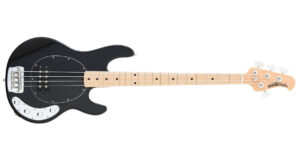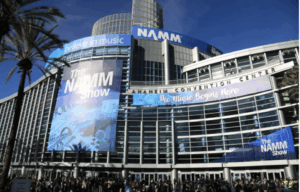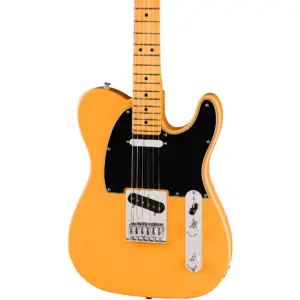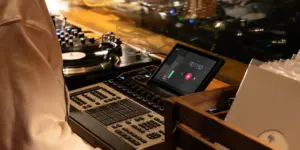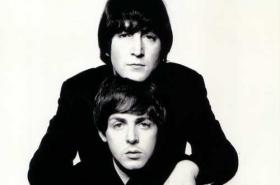
There are controversies to be avoided in a lifetime. Trying to find the defining influence of the biggest cultural phenomena of the century – The Beatles – isn’t even the half of it, especially when we’re nitpicking and comparing the two who made one of the most influential songwriting partnerships ever.
Wow, that was a lot of adjectives.
John and Paul, Lennon and McCartney; they’ve almost brought us up with their songs, told us what to feel when certain things go awry. But knowing where exactly the magic lay might be an impossible question to answer, reconciled to being an open ended inquisition for when you have the time. (Better than eating, anyway)
This isn’t a malignant hint at Ringo Starr and George Harrison’s lack of skill; just their lack of influence in the studio, though Harrison did venture more into songwriting after Rubber Soul.
The comparison between McCartney and Lennon becomes inevitable, because therein you can pinpoint what made them so emblematic together, and what eventually gave in. After all, it’s all there in the people they were and who they were to become.
Please Please Myself
For The Beatles nerd, the summer of 1966 assumes historic proportions. This was when the Fab Four played their last official concert, in San Francisco, before disavowing them for the rest of their time together.
That sudden break in a routine, which had yielded more than a thousand concerts in about four years, gave each member the room and leeway to move in their chosen directions.
McCartney went around exhibiting his art works, after having been a closet painter for about ten years, while Lennon delved deeper in two things that characterized his Beatles afterlife; LSD and Yoko Ono. Who knows which resulted in the other, but they became underlying themes of the John Lennon myth. Even though he spent the rest of ‘66 acid tripping, Lennon’s biggest folly was selling his soul to Yoko’s rad new thought processes, like cutting off from his son, Julian, and staging Bed-Ins as anti-war protest.
Sgt.Pepper’s was released the following year, so I suppose the drugs were alright, but the group had developed its first rifts. It was George Harrison who took a particular disliking to Yoko Ono first, to be eventually followed by all and sundry.
Except, of course, the newly mustachioed John Lennon.
[youtube_video id=6vZLVJwXP-U]
Lonely Hearts Club Band
McCartney’s musical influence started to bear down on the band roundabout then, as Lennon was too busy traversing other acid induced dimensions. This was hardly devolution, with McCartney suffusing the sound with his own soulful piano driven melodies.
Lennon deemed it all ‘granny shit’, but the audience didn’t. Songs like ‘She’s Leaving Home’ and ‘Fixing A Hole’ went a long way in making Sgt Pepper’s the cultural landmark that it was. Never the one to belittle Lennon’s contributions, but it was McCartney’s out-of-chord song structures that began to redefine music and the experience of listening to a record.
With a little help from my friends
Thus far, right from their formation in 1958, through to the boom time in the early ‘60s, Lennon had pretty much been The Beatles ringleader. But with him seceding so much ground to McCartney, new emotional physics developed within the group chemistry.
George Harrison recounted that a studio dominated by McCartney wasn’t very democratic, with philharmonic arrangements becoming the prerogative of McCartney, and McCartney alone. “He’d just come in and say ‘Do this’”, was how Harrison tersely put it.
[youtube_video id=jBDF04fQKtQ]
Leaving the Yellow Submarine behind
When it all came unstuck, it was probably bound to get ugly. And it did, right as Lennon decided to become the one to call it quits, during the recording of the Abbey Road in ‘69.
Even that last stint in the recording studio had come about after some hard negotiations and George Martin’s subtle diplomacy, since Lennon wanted his and McCartney’s songs to be on reverse sides of the album. As a compromise, the first side had individual singles, while the second side wound down with a 16-minute medley of short songs by McCartney. Lennon also decided to hold off on the public announcement of his departure till all financial formalities were resolved.
In the event, McCartney went public with the news first, leading to a frenzied rush for his first solo effort, McCartney, while Lennon fumed and debated. “I brought the band together, I disbanded it, it’s as simple as that”, was Lennon’s take, but history had already been written.
Not quite the Jesus
So, while Yoko and John retired to anti-war protests in America, McCartney was already charting a new success story with his band, Wings. Linda was there too, but she never became an overriding influence on McCartney’s life or music; something that Lennon could’ve imbibed.
But he handed Yoko the reins, even musically, and she inspired him to gems like Woman Is The Nigger Of The World. Imagine was a Lennon classic from those years, yes, but by then, he’d become more about ‘headlines’ than ‘headlining’.
This is why I tend to veer towards John Paul McCartney as the pre-eminent Beatle. Lennon’s death was tragic, and McCartney’s reaction to it too – he said, “It’s a drag”, when asked for a response – but you can’t hand out brownie points for being dead. The fact remains, McCartney wanted the music as much as it wanted him. But no one’s sure what John Lennon really wanted.



